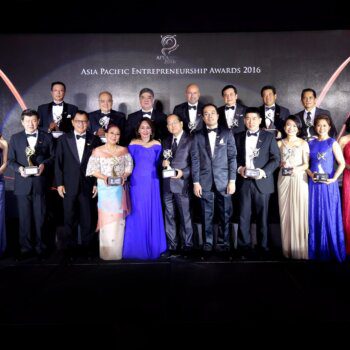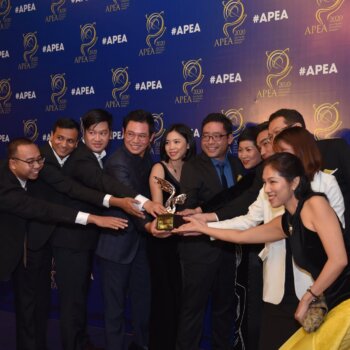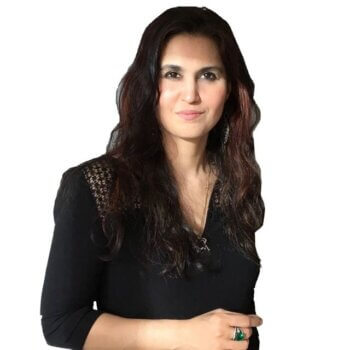With over 10 years of experience in non-fiction television and interactive programming, Jotica Sehgal has worked for some of the best production houses and broadcasters in the country and been instrumental in making some of the biggest shows successful. Her editorial and production abilities cut across a variety of genres in the television medium. After completing her media course from Sophia, Mumbai, she joined Miditech to kick-off her television career.
After honing her skills as a director under the television producer and quiz show host Siddhartha Basu, Jotica was invited by CNN-IBN to lead its feature division. Working as the Associate Editor of the features division, she spent 5 years managing the programming wheel as she conceptualized, produced and anchored a variety of feature and lifestyle shows. Critically acclaimed shows like Living it up, Secret Kitchen, India Rocks went on to form a legacy with their gripping content and innovative style. The shows she has been a part of have been a huge success and have even won coveted television awards.
She now works as a freelance director and runs her own ideation company called Cash Cow Films in Delhi. She shares the creative vision of Cash Cow Films and manages coveted projects for premier networks like Discovery, CCTV Network, and the History Channel. Jotica speaks to the Asian Entrepreneur today about her story.
So how would you describe Cash Cow Films to the unfamiliar?
Cash Cow Films is an Idea cell. We think of ourselves as ideas evangelists. Ideas are sacrosanct here and we believe in immaculate execution of these visions. We curate content across different mediums but television and films still remains our prime muse.
We believe that everyone and everything we come across is an inspiration. It offers a new insight, a new perspective, a new opportunity. We are in the process of constant re-invention and evolution.
Once an idea has caught our fixation, we let our imagination seduce our storyboard. The storyboard is then brought alive after solid critiquing and brainstorming and further researched to test the viability and then, packaged for the intended target audience. As ideas evolve, perceptions change and epiphanies happen.
How did all this begin?
Cash Cow Films was set up by two filmmakers with the vision to push the boundaries of television programming in India. Our attempt was to fight the clichés and clutter on Indian television. Even though the Television sector in India has grown swiftly in the last two decades with viewers having more than 600 channels to choose from, there is inverse proportionality between the content created and demand of the viewers. Channels thrive on scoops and sensationalism and most programs appear to be imitations of one another.
There was a dire need of a creative cell that could produce original ideas and identify trends in the space of interactive programming. We realized the gap and decided to create a pool of cutting edge content that was authentic, sincere and credible with a fresh trail of perspectives and alternate treatments that the industry lacked. We stressed on research that was balanced and scientifically accurate and put together a team of people with the capacity to dig up the relevant information and the skills needed to present that information in an engaging and entertaining manner.
What sort of ideas have you guys come up with, could you give us a few examples?
We are a strange cusp between science and art of visual content. We take a scientific strain of logic and then toy with it like an artist. We want our content to be accessible but one that induces questioning and presents a fresh perspective. We are the first ones to launch a series that will showcase India never seen before, on a hot air balloon. We are the first to conceptualize and publish India’s first luxury wedding resource publication that will be the bible for not just brides and grooms, but even for industry experts worldwide. In our upcoming series based on Indian Psychopaths, for the first time on Indian television, we will be probing the minds of these criminals.
Our ideas are progressive and without labels. We do lifestyle shows and new reportage documentaries with the same panache.
And how did the market take what you were pushing out?
Non fiction in India forms a miniscule 31 percent of the total television content. It is in its nascent stage and does not have a clear vision. We knew that our clarity will be our misdoing in a market that is trying to develop a vision. We had therefore prepared ourselves for a tough start. We faced a lot of resistance at first. Broadcasters were skeptical to work with a new firm that offered something ‘unconventional’ and even though people believed in our production abilities, they did not place their allegiance when it came to the company’s production capacity. The only silver lining was that our ideas always got a great response.
Did you market your work in a particular way?
Marketing in a niche market started out as an experiment. It took our collective strength to constantly strategize, thwart and then re-invent. But mostly we relied on our existing network of friends and colleagues; we used the power of social media and even invested in small campaigns and events to spread the word. That worked out well for us to begin with as we managed to build an impressive portfolio. But as we started to grow we realized more needed to be done. We needed brand recognition among the heavy hitters now.
So were there any particular challenges that you faced in this industry?
It was a tough industry to crack into. Competitors operated in what we call ‘the factory mode’, a mode where they churn out retail work without any aesthetic or quality with a bait of attractively low pricing. It was a small market with limited broadcasters and newer players emerging everyday. One had to constantly re-invent and nail better strategies to beat the competition. International players, with their massive pool of resources were setting up to compete with Indian players.
And how did you overcome these challenges?
Clarity and Control. We have a clear strategy for the company. One that creates exclusive content and ‘select programming’ rather than costlier, broad-based deals that fill our library with less-successful titles. We always have and still continue to focus on carefully curated content than work on non-exclusive bulk content deals. Content Is King! and at Cash Cow Films, we have woven that epithet into the nucleus of our company. We also realized that there was a need for more original ideas than relying on successful existing formats. There was a dearth of specific content for each prominent age group. We built a bank of ideas for each of these categories. And eventually it was executing the ideas we believed would be clutter breakers. We worked hard to train and groom the best possible talent. We invested in each project till the results exceeded our expectations. We set very high expectations when it came to the standards of execution and we achieved them each time irrespective of the investment.
We incurred losses at first but the strategy paid off ultimately. Quality was and will always be the deciding factor.
Is there an art to generating ideas?
Less of an art more of a science! A good idea Is based on solid research, in depth knowledge of the market, trends and the audience.
In that sense, do you guys base your ideas on what you think the market needs?
Yes and No! Well, we shadow the trends to steer clear of the competition in the market. It is important to catch the topical vibe and drive on the current mood swing of the viewership pattern. But more importantly one must focus on how the viewership patterns are changing as our society evolves. To determine future trends and put our stamp on potentially lucrative content, we would have to re-invent programming to a degree. But we don’t shy away from the challenge.
What can you tell us about the broadcasting industry in India?
The Indian television and broadcasting industry has grown tremendously over the last two decades and has emerged as the world’s third largest TV market. The industry caters to more than 600 million viewers and crossed the 650 channel mark (more than 250 channels are also awaiting approval). Entry of new broadcasters and shifts in viewing patterns have put pressures on the mainstream channels, necessitating them to revisit their content strategy- quality of content/developing new content formats.
Globalization has also emerged with the adaptation of formats of successful shows running elsewhere being brought into India, for example, Kaun Banega Crorepati (based on Who Wants To Be A Millionaire), Indian Idol (based on American idol), Big Boss( based on Big Brother)The ratings system in India is inadequate. It needs to be enhanced to give a better positioning of TV viewing. It is difficult to predict trends. We know that a young Indian with an average age of 29 constitutes a majority of wealth accumulators. They will steer the direction of the entertainment content and delivery mechanism over the next few years.
With less than 20 per cent of television channels that are profitable on stand-alone basis conversion from analog to digitization, will play a key role.
Are there things you are excited about in the industry?
With smart phones gaining in popularity and acceptance, emerging youth markets such as China and India offer a bigger opportunity in terms of market size and potential. India is predicted to become the second largest youth smart phone market with 66 million users. This creates an opportunity for us to create content for younger audiences on these platforms.
What can we come to expect from Cash Cow Films in the future?
We see consumption patterns make a definite shift. Two factors are spearheading the revolution, young population with high disposable income; and a new generation that is ready to embrace new technology.
New media will be the way forward. We aim to create content that appeals to this segment of people accessing newer platforms. Existing broadcasters are looking to engage these audiences through new offerings. Therefore niche programming, currently unprofitable, will in the future be a viable business. The way we see things, premium pricing will be demanded for exclusive content and consumers will be willing to pay for such content. We are therefore setting up specialized streams to help us attain supremacy in a popular yet specialized market.
3G, 4G and Wireless Broadband are evolving as new platforms for distribution of content. People want to watch content on the go. We are already working towards creating content that can be accessed anytime and anywhere.
We would like to create interactive experiences in the form of short format content, videos on YouTube and curate content for the web. We will invest in ideas that involve monetizing content through high-speed Internet on smartphones.
Why do you do what you do, what is the story behind that?
Entrepreneurship is about learning from yesterday’s insights and creating a new realm of possibilities for the future. For me, it isn’t just launching a venture and making money; its about building great new things and leading an enhanced, enriched life.
What are some important lessons you’ve learnt as an entrepreneur so far?
Dream big even if it means taking risks and putting yourself out there. You will suffer setbacks but it is crucial to think of them as learning opportunities. There is a real sense of winning in the effort. More often than not people will think you will fizzle out in a flash. That inaction is better than failure. The trick is to challenge set notions.
Any advice for entrepreneurs out there?
Know your market well; know your competitors even better! This is the only key to device appropriate strategies for your business. Focus and clarity are the important ingredients.
Study the market and research your competitors thoroughly. Create newer markets and trends. It is difficult to penetrate already saturated markets. But there is always a gap that needs to be bridged. Look for that gap.
Find the right partners. Carefully weigh partnering options that are best suited to your company.
Parting words of wisdom?
Being an entrepreneur is not for everyone. The journey is rough and wrought with challenges. And you must think of it as an ongoing expedition that will take hard work, creative solutions, handling setbacks, and constant innovation.
Connect with Jotica Sehgal and Cash Cow Films today:
Email: [email protected]
Linkedin: http://in.linkedin.com/pub/jotica-sehgal/9/bb1/9ab
Website: http://cashcowfilms.co.in/
Facebook: https://www.facebook.com/jotica.sehgal






























